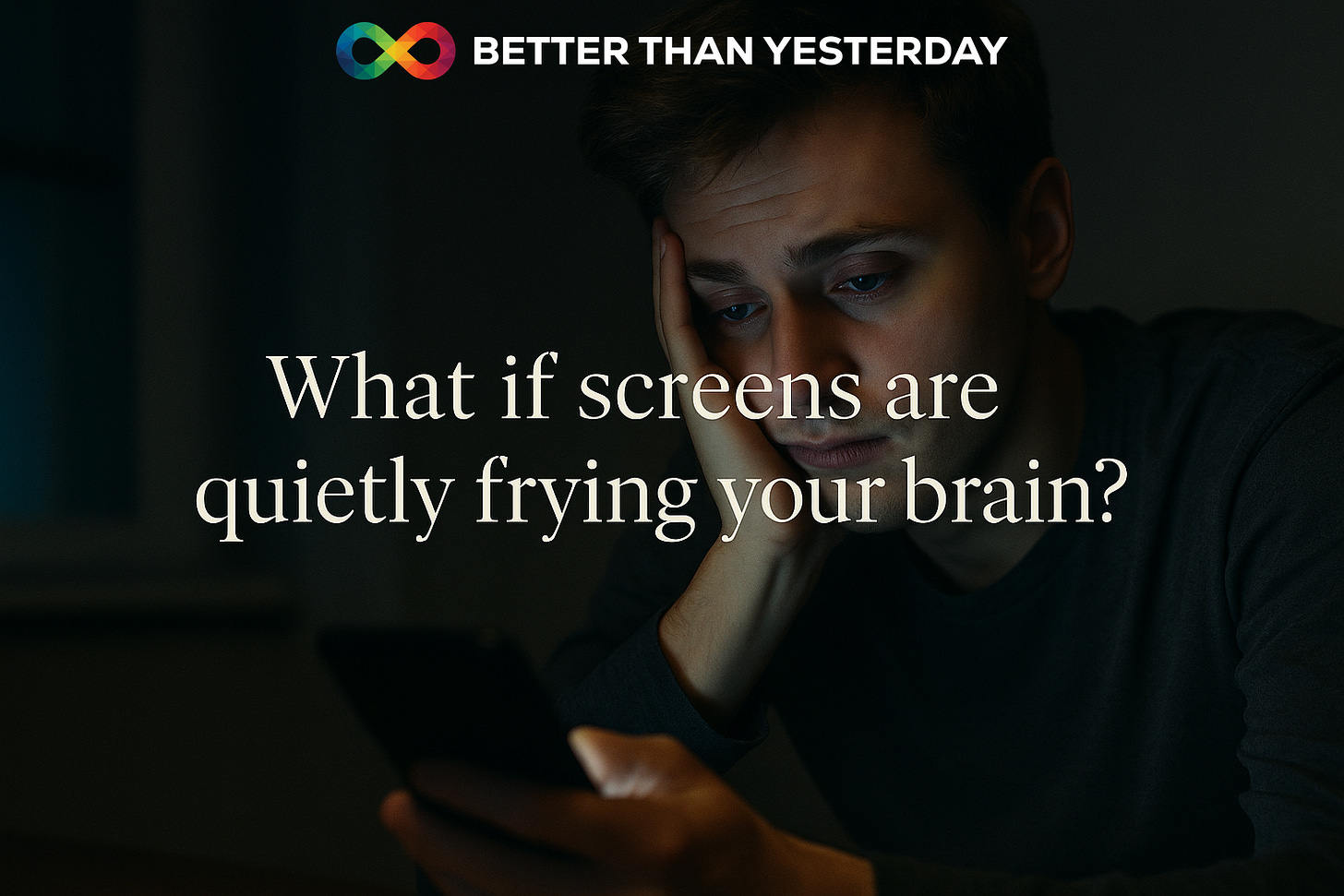Brain Rot Is Real
How screens are quietly destroying your focus, memory, and emotional clarity
Ever open your phone and suddenly lose an hour?
Not to emails or anything useful, just mindless swiping, skipping, and scrolling.
That fog you feel afterward? It’s “brain rot”, and yes, it’s real.
What is brain rot?
Coined by Gen Z and now confirmed by researchers, “brain rot” describes the mental exhaustion, focus problems, and memory issues caused by chronic digital overstimulation.
It’s not an official diagnosis, but it mirrors a very real cognitive state.
Neurologists describe it as a mix of dopamine dysregulation, information overload, and attentional fatigue. Your brain is so overstimulated, it loses its ability to focus or think deeply 🧠.
What once felt like mild distraction now looks more like long-term cognitive erosion.
Why it’s happening
College students now spend 7+ hours a day on screens just for entertainment, not even counting schoolwork 📱.
These platforms are engineered to keep you hooked:
Every scroll = a new dopamine hit 🎰
Every ping = a micro-reward
Every loop = less cognitive recovery time
And when you’re switching tasks constantly, your brain never fully processes anything.
This creates extraneous cognitive load, where you’re using energy just to manage distraction, not to think.
Over time, this disrupts memory formation, reduces mental clarity, and increases anxiety.
Not because you’re weak, but because the environment is overwhelming by design ⚠️.
The warning signs
• You feel foggy even after doing “nothing”
• You can’t remember what you just read
• You’re compulsively checking your phone without realizing it
• You feel mentally “tired but wired” all the time
If this sounds familiar, you’re not broken.
Your brain’s just reacting to chronic overstimulation and poor digital hygiene.
How to fix it
The good news? This isn’t permanent damage. Your brain is plastic, it adapts.
And it can recover when you give it space to breathe 🌿.
Try this:
• Curate your feed: Follow fewer people. Cut the noise. Uplift your input.
• Use the 20-20-20 rule: Every 20 minutes, look at something 20 feet away for 20 seconds 👀
• Do things offline: Music, nature, puzzles, real convos
• Set screen boundaries: Use timers or app limits
• Protect your sleep: Screens before bed mess with your circadian rhythm 😴
You don’t need to quit digital life. You just need to take back control.
This isn’t just for teenagers
Yes, younger brains are more vulnerable due to ongoing development.
But older adults aren’t immune either, especially with doomscrolling, streaming, and 24/7 work culture.
The same overstimulation leads to reduced focus, poor memory retention, and emotional exhaustion.
Brain rot is real, it’s your brain on overload. But with rest and intention, you can get your focus and clarity back.




If I spend less than 1 hour on my screen, I always feel better.